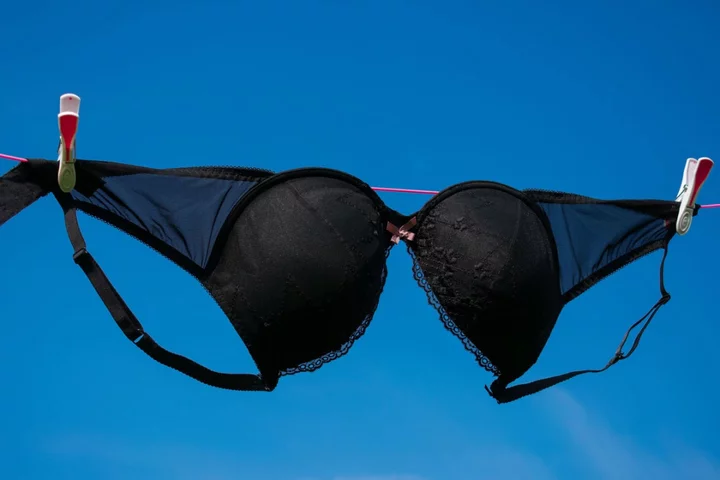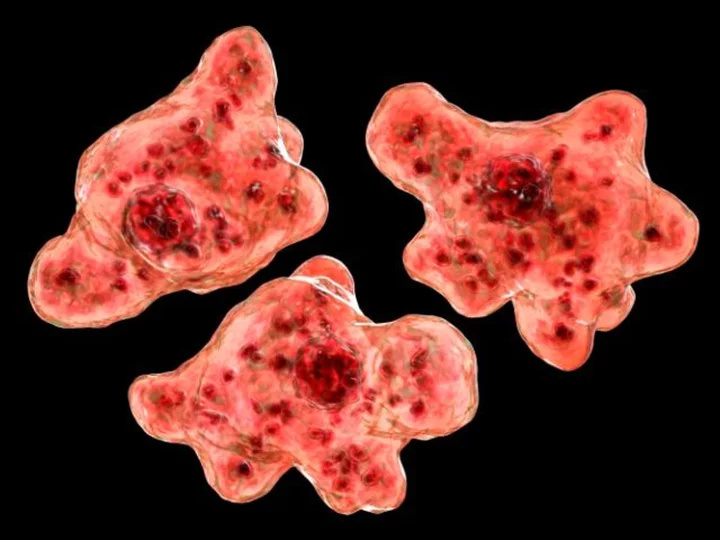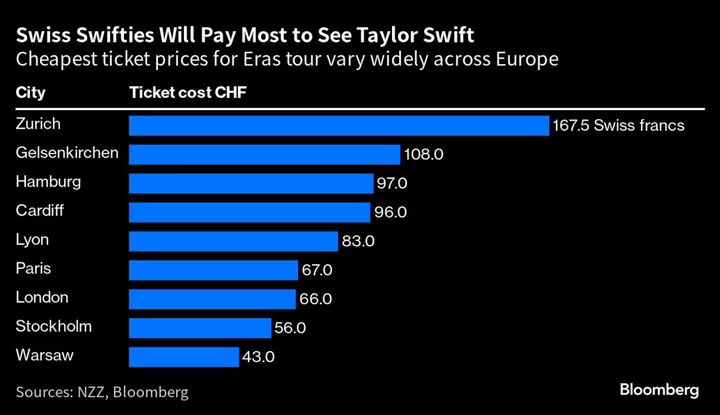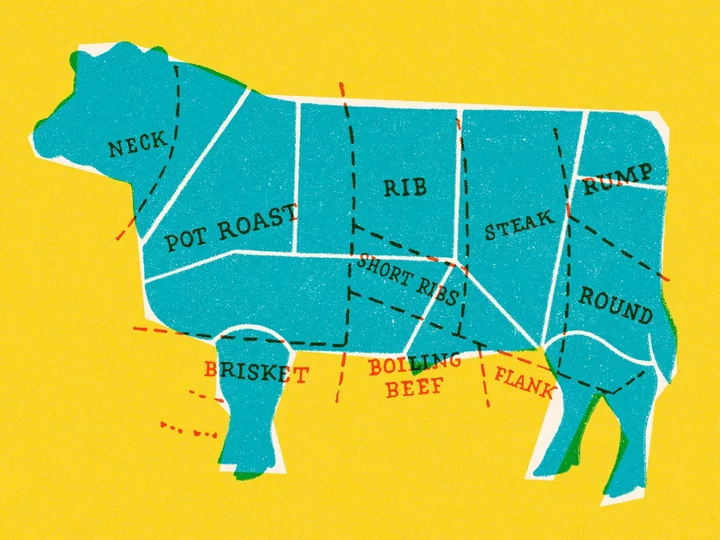
Mum with stoma bag shares bikini pictures to celebrate ‘second chance at life’ after cancer scare
A mum who was diagnosed with Crohn’s disease aged 13 and had to have her colon removed eleven years later as it became pre-cancerous, giving her a “second chance at life”, is now an influencer bearing all to show it is possible to “live a beautiful, normal, happy life” with a stoma bag. Meghan Cary Brown, 31, a stay-at-home mum and content creator, from Charlottesville, Virginia, in the US, spent most of her teenage years in “so much pain” and had to “deal with bullying as well as being sick”. At 24, the mum of two, to Cora, three, and 23-month-old Colin, was told her colon was precancerous, causing her to “collapse on the floor crying”, just eight months after she had married Thomas Brown, now 31, a project manager. Meghan was in a “very dark place” and was “overcome with sadness” at the thought of getting cancer, so with some encouragement from her doctor, had her colon removed and had a stoma bag fitted. One year later she created an Instagram page, and more recently a TikTok, to share her story and raise awareness about life with a stoma bag with thousands of followers. Her postings include an open discussion of her experience, sharing bikini pictures and openly explaining she has worn “beautiful lacy wraps” for stoma bags in intimate moments with her partner, and it has “served as a healing mechanism” to make her realise she needs to “stop worrying so much” about the opinions of others. “I started posting as I wanted people to see that you can live this beautiful, normal, happy life with an ostomy bag, and when I was researching it I couldn’t see anyone my age talking about it,” she told PA Real Life “But the other reason was that it almost served as a healing mechanism for me – I think it was really powerful to just put myself out there on the internet. “Like, this year at the beach for the first time I wore a bikini with my bag on show and it felt amazing – I just thought life is too short.” After Meghan was diagnosed with Crohn’s disease she had to be home-schooled for a year because she “could not even get out of bed”. Meghan said: “My parents would find me lying on the bathroom floor because I could not get up and walk to the bed, I was in so much pain, and I had so much fatigue. “But it was also hard because since I was home-schooled, we didn’t have social media or anything, so no-one knew where I was, and there were lots of rumours spread about me – I had to deal with bullying as well as being sick.” Meghan was put on lots of different medications and had to deal with their side effects, such as giving her a “big moon face” as she retained water. She said: “I can remember having to get clothes three times my size and just breaking down crying. “That’s really difficult when you’re a teenage girl.” One year later Meghan was “in remission” for Crohn’s and was able to return to school. She continued taking “maintenance medication” which kept her symptoms at bay but, when she was in her first year of university, she began getting sick again. She explained: “I fell out of remission and it turned out I formed antibodies towards the drug I was taking so it was no longer working. “I had to inject myself at home while in college so it was really difficult.” Meghan also had to have regular hospital visits and aged 24, eight months after getting married, a routine colonoscopy showed that her colon was pre-cancerous. She said: “When they told me I had high-grade dysplasia deep within the tissue of my colon, and it was pre-cancerous, I was heartbroken. “I can remember standing in the kitchen when my doctor told me this over the phone, and it made me collapse on the floor crying because when you hear that word, cancerous, all you can think is that you’re going to die. “It was terrifying.” At the follow-up appointment Meghan was told she could have routine checks to make sure the cancer was not progressing or have her colon removed. She said: “I was adamant that I wasn’t going to have my colon removed – I thought my life would be over if I had that done. “I was in a very dark place and I was overcome with sadness. “But when I told my doctor my decision, he explained that I could have it removed now, or in a few years’ time I could be a mum with young children and have cancer. “That just put things into perspective for me – it made me realise it’s not just about me, so I decided to have it removed.” From that moment on, Meghan decided to live her life to the full. She said: “I decided I was going to look at this as my second chance at life – I had already been incredibly sick for 10 years – I told myself I was going to look at this as a positive thing. “Before, there were so many things I couldn’t do, like I had so much anxiety riding in a car because I couldn’t control my bowels and I was so worried that I wouldn’t be able to find a bathroom.” It took Meghan a few months to get used to having a stoma bag, and she explained what it is like day-to-day: “I change the whole system appliance every three to four days, and throughout the day I have no feeling. “I don’t have the urge to go to the bathroom, it just happens. “Throughout the day I’ll just go to the bathroom and empty my bag – I do this around six to eight times a day.” Meghan also had to adjust to having a stoma bag while being intimate with her husband. She said: “I wore beautiful lacy wraps made for people with bags, with a pocket to tuck it in, as it helped my body image because I felt pretty. “But honestly, now I’ve had my ostomy bag for almost seven years, we’re so comfortable with one another – if anything ever happens during intimacy, we just can laugh it off and move on.” One year after having her bag fitted she decided to create an Instagram account to share her story, where she now has more than 14,100 followers, and a further 19,400 followers on TikTok. Meghan said: “It really puts life into perspective and really made me realise life is so short. “I need to stop worrying so much about the opinions of others, or what other people are going to think – making my Instagram account made me realise this too. “I’m just so happy to be happy and healthy.” Read More Charlotte Dawson gives birth to her and Matt Sarsfield’s ‘rainbow baby’ How to sleep during hot weather, according to experts How to keep your pet safe and healthy during a heatwave Charlotte Dawson gives birth to her and Matt Sarsfield’s ‘rainbow baby’ How to sleep during hot weather, according to experts How to keep your pet safe and healthy during a heatwave
1970-01-01 08:00

How often should you wash your bra?
Summer and smalls… it’s the yin and yang of our wash-day world. You’ve got a bit hot and sweaty at lunchtime, but you’ve only worn your favourite lacy bralette once… so it’s OK to put it back in the drawer, right? And then there’s the sports bra in your gym bag – it’s looking a little bit grubby but you can’t remember perspiring in your Pilates class. Here, experts shed some light on how you should be looking after your lingerie, along with some do’s and don’ts… How often should you wash your bra? “Realistically, if your bra hasn’t been worn for sports or on a particularly hot day, then we would advise washing every three to four wears,” says Rachael Burdis, product and marketing assistant at Pretty Polly. “If you leave it too long, then it will allow bacteria to build up and you could get dreaded boob spots; or even worse your bra could start to smell,” warns Burdis. Do you need to hand wash your bra or can you put it in the washing machine? We’ve all read the small print… some labels recommend hand washing but is this really necessary? Fabric plays a huge part in not only how often, but also how you wash your bras, says Burdis. “We all know bras are delicate garments and ideally, we should be hand-washing them each time in warm water – this keeps the bras’ shape and maintains the quality of the materials used. “However, I think we can all say we’re guilty of not doing that all the time – but we should try our best!” With fine fabrics like silk and fragile laces, she says they should always be hand-washed to avoid any additional wear and tear. If you’re pushed for time and your bra is going in the washing machine, Dinara Akhmerova, senior manager UK and Ireland for Simone Pérèle, advocates a detergent made specifically for delicates. “We recommend you don’t add softener as it can stay in the fibres for longer and reduce elasticity. Also, wash on a delicates setting at maximum 30C and no more than 800 RPM spin.” She also suggest using a bra wash bag to protect your underwired bras – and always dry lingerie flat to keep the shape. Does it matter if you wear the same bra for a week, even in summer? “We wouldn’t advise wearing a bra for a week; whether that be summer or winter, just to avoid any bacteria build-up,” says Burdis. “We also know length of time worn plays a huge part when deciding when to wash your bra.” If it’s been for a couple of hours a day, she says you could have a week’s worth of wear. But for a full day’s wear, she wouldn’t advise wearing your bra for a week. For matching sets, should you always wash knickers and bras together, so they don’t become different shades? “We tend to wash our knickers more often than bras – and good-quality lingerie shouldn’t fade so dramatically that you can see a marked difference, simply from not washing them together on a few occasions,” says Akhmerova. However, how well your lingerie maintains its colour depends on many factors, such as how careful you are when washing it, the type of fabric and colour, suggests Akhmerova. “Whether you wash your sets together or not, the number one rule is to always separate colours, especially your whites. Just don’t mix the colours! “Also, don’t use bleach on whites,” she warns. “It’s more likely to turn lingerie yellow than brighten it.” What about sports bras? For sports bras, Burdis sees this a little differently: “With a less intense low-impact workout, we advise every two wears. “But when it comes to a heavy gym session, long run or HIIT class, we advise after each wear to ensure you are always smelling fresh – and the bra isn’t accumulating bacteria.” Should you wash you underwear before wearing it, if it’s brand new? “Underwear should leave factories or packing houses clean as strict hygiene rules are in place,” says Akhmerova. “But it never hurts to give it a rinse out before the first wear.” Read More Charity boss speaks out over ‘traumatic’ encounter with royal aide Ukraine war’s heaviest fight rages in east - follow live 5 late summer blooms to plant now This is why you keep waking up at 4am – and what you can do about it The two best exercises for lowering blood pressure, according to study
1970-01-01 08:00

Eskom Latest: Unplanned Outages Drop by 2,000 MW
Unplanned outages at state power utility Eskom Holdings Ltd.’s generating fleet fell to less than 16,000 megawatts in
1970-01-01 08:00

What to stream this week: 'Guardians of the Galaxy Vol. 3,' Quavo, 'Reservation Dogs' and 'Mixtape'
This week’s new entertainment releases include fresh tracks from Quavo, the arrival on Disney+ of James Gunn’s cornball finale “Guardians of the Galaxy Vol
1970-01-01 08:00

For remote and laid back Dunedin, a warm welcome to the Women's World Cup
Women's World Cup host city Dunedin, at latitude of 45.88 degrees South, is the southernmost city to ever stage a game in a soccer World Cup, men’s or women’s
1970-01-01 08:00

Georgia resident dies from rare brain-eating amoeba, health officials say
A Georgia resident who was likely infected while swimming in a freshwater lake or pond has died from a rare brain eating amoeba infection, the Georgia Department of Public Health said.
1970-01-01 08:00

Kanye West Has X Account Reinstated After Months-Long Suspension
Kanye West has been reinstated on X, the social media platform formerly known as Twitter, after a nearly
1970-01-01 08:00

Charlotte Dawson gives birth to second child with Matt Sarsfield after miscarriage
Charlotte Dawson has welcomed her second child with fiancée Matt Sarsfield, several days after a “false alarm” that saw her rushing to the hospital. The reality star, 30, shared a photo of her cradling her newborn son while laying in a hospital bed on her Instagram Stories early on Sunday morning (30 July). She wrote in the caption: “Guys he’s here!!! I can’t believe it!!! I came in at 1am I had him by 2.13am.” Dawson, whose father was the late comedian Les Dawson, told her 1.3 million followers: “Can’t wait to update you all as soon as but Matthew has nipped to get me a Maccies [McDonald’s] and I’m having cuddles.” Dawson and Sarsfield, who have been engaged since 2020, are also parents to two-year-old son Noah. In another post, showing Sarsfield holding the baby, Dawson wrote: “He’s turned up with no Maccies ffs [sic]. But look at my beautiful baby daddy with our boyo [sic]. All happened so fast but thank you for being amazing Matt.” Several days earlier, Dawson revealed that she was rushed to hospital after her water had broken. However, it was a “false alarm” and she was sent home to wait until she went into labour. The Ex On The Beach and Celebs On The Farm star wrote in a post at the time: “Oh guys it’s been a bloody weird 24 hours… My waters broke last night but no pain, managed to sleep through it. Just getting checked now as movement’s been slow, happier I can hear his little heartbeat now.” Last year, Dawson revealed that she had suffered a miscarriage at 10 weeks that left her “heartbroken beyond words”. Her second baby has been dubbed her “rainbow baby”, a term that refers to a child born after the previous loss of a baby due to miscarriage, stillbirth, or death during infancy. She opened up about how she and Sarsfield were “over the moon” when they first discovered she was pregnant, but later it turned out it was “just not meant to be”. “Miscarriages are so common and not spoken about enough. We are so heartbroken right now, have no words and just don’t feel up to posting being my happy silly self right now,” she said. After learning that she was pregnant again, Dawson said she felt “very blessed and very happy”. “We were absolutely heartbroken about the miscarriage last year,” she added. “It came as a shock when I found out last April. It was like we’d just come to the realisation that we were having a baby and I lost it at 10 weeks.” Read More Blood, guts and cheap cuts: We need an alternative to eating animals – and ‘ethical meat’ isn’t the answer Strictly Come Dancing’s Janette Manrara gives birth to first child with fellow dancer Aljaz Skorjanec Jamie Lee Curtis says it is her ‘job’ to ‘fight’ against transphobia on behalf of daughter How to sleep during hot weather, according to experts How to keep your pet safe and healthy during a heatwave This is why you keep waking up at 4am – and what you can do about it
1970-01-01 08:00

Swiss ‘Swifties’ to Pay Most to See Pop Star Taylor Swift: NZZ
Swiss fans are paying the most to see pop star Taylor Swift. The cheapest ticket for the US
1970-01-01 08:00

Blood, guts and cheap cuts: We need an alternative to eating animals – and ‘ethical meat’ isn’t the answer
Amber Husain was cooking dinner for a friend when she suddenly realised the meat she was preparing was a corpse. She looked at the chicken in front of her and was overcome with a visceral sense of disgust. Instead of food, she saw “a carcass – plucked, beheaded, and fleshy”. Husain was 26 when she had this epiphany, and it served as a wake-up call not just for her stomach but her mind, too – as her personal tastes shifted away from meat products, her political outlook on the meat industry and food production more broadly also altered and expanded. Five years later, that moment of revulsion forms the opening of her new book, Meat Love, in which she scrutinises the idea of “ethical” meat consumption, and dares to ask how the contemporary middle classes have come to criticise “the worst violence against animals” while still happily feeding on their flesh. Why, for example, has well-heeled, middle-class London gone nuts for slurping bone marrow from the shin bones of baby cows? Why is offal on so many trendy menus? How has contemporary culture at large come to accept that factory farms are monstrous, but that if animals are cared for, cherished and loved while alive, we should feel better about killing them for our carnivorous pleasures? “For ages, I was one of those carnivores who felt mildly bad about eating meat but just turned that into this inane, self-consciously sadistic part of the pleasure of it all,” Husein tells me. “The more my diet started to revolve around stuff that wasn’t meat, the weirder meat started to feel. Interestingly, once my stomach had been radicalised, I found I had a much greater intellectual openness to thinking about the politics of meat.” Having freed herself from the conflict of eating meat but also feeling bad about it, she found she was able to go beyond those questions of morality – which she suggests can be “stifling” – and think politically. “Now that I have no desire to eat animals, there’s nothing to stop me reckoning with what it means that the meat industry [consists of] an underclass of both humans and animals who are exploited and – in the animals’ case – killed for pleasure and profit.” This is the essential crux of Husain’s argument, and it’s something often lacking in discussions around the “ethics” of meat consumption. For Husain, the question is not, “how can humans eat meat responsibly?” but “how are certain lives devalued to an extent that their suffering can be written off, in order to ‘make a killing’?” What she’s saying, in other words, is that whether the meat on the table has come from a factory farm or an organic farm, or whether you’re tucking in at Burger King or the River Cafe, the path to the plate is still paved with violence. And, while current cultural trends may claim it is better to love and respect an animal before killing and consuming it, perhaps what this cultivates is the ability to embrace exploitation “in a spirit of virtuous indulgence”. What does it really mean, for all living beings, if love is imagined as compatible with killing? “To slide your buttery hand between the flesh and skin of a thing that, if only for a moment, you have re-learnt to perceive as a corpse, is to give an invigorating massage to your sense of political possibility,” Husain writes in Meat Love. By the slim book’s end, her invigorated “sense of political possibility” has led to “a ravenous hunger – a desire for a different culture, a different society”; a new world “in which no one, neither animal, immigrant, worker, woman, or peasant, was considered a thing to be owned, controlled, killed, or left to die”. For many, the leap from a chicken breast on a plate to the exploitation of oppressed people around the globe might seem like a vast one. Yet, it certainly seems clear that there has been a marked shift in the way meat is conceived and consumed – among the middle classes, at least. Since the turn of the millennium, foodie figures like Hugh Fearnley-Whittingstall have been promoting “seasonal, ethically produced food” as part of a broader commitment to caring for the environment. At the same time, a distinctly carnivorous spirit has taken hold – one that professes to be an “honest”, “grounded” and “down to earth” ethos. “Good food, good eating, is all about blood and organs, cruelty and decay,” Anthony Bourdain wrote at the start of the 1999 New Yorker article that would, eventually, catapult him into global foodie fame. I find it easy to laugh at Hugh Fearnley-Whittingstall and people like that, but I’m not totally convinced that they’re really the bad guys Lewis Bassett Then there’s Fergus Henderson and St John – the illustrious London restaurant, born in 1994 on the premises of a former bacon smokehouse, which popularised “nose to tail” dining. This offal-centric “no waste” approach is neatly summed up in Henderson’s oft-quoted phrase: “If you’re going to kill the animal, it seems only polite to use the whole thing.” Traditionally “cheap cuts” are “elevated” from a source of sustenance for the working classes, to a source of virtue for the urban bourgeois. According to its own cookbook, St John dishes combine “high sophistication with peasant roughness” – that winning aesthetic formula that also sees middle-class urbanites flocking to farmers’ markets and chugging natural wine. In a sharp and searing piece for food and culture newsletter Vittles, writer Sheena Patel dubs this “Rich Person Peasantcore”, asking: “Why are these influencers pretending that they themselves till the land and eat like 17th-century French peasants when in fact their chopping boards cost more than most people’s rent?” In the face of swathes of small plates adorned with offal, and slices of ham served for upwards of £20, it seems like a pertinent question not just for influencers, but also for today’s trendiest restaurateurs and diners. Lewis Bassett is a chef and the host of The Full English podcast, which, over its two seasons, has dived into everything from the birth of “modern European” cuisine to high food prices, factory farms, and why Britain is in love with Greggs. “It’s interesting the way we create these fantastical worlds for us to eat within,” he says. “It is clearly a fantasy to imagine that you can have the rural experience of a peasant in France or Italy, in modern-day Britain.” Yet, he also says that this trend is far from new. The current “rustic” style – typified by “nose to tail eating” – is, he suggests, “intimately tied with what you could call a culinary and broader cultural movement that appears in the wake of countercultural movements in the Sixties, and eventually finds its way into food, especially as some of those countercultural people get a bit older and a bit more affluence”. Essentially, “it’s the same thing that manifested in places like Habitat,” he says, of the homewares and furnishings brand founded in 1964 by Terence Conran. Both design and dining were transformed, offering experiences to the middle classes that were both refined and casual at the same time. Alongside that cultural shift, and “that fashion for pared-down forms of eating out”, Bassett notes the arrival of a broader awareness of environmental and animal welfare concerns. “It’s obviously easy to ridicule these middle-class forms of culture,” he says, “but these concerns are ones I certainly share and I think should be considerations for everyone. I find it easy to laugh at Hugh Fearnley-Whittingstall and people like that, but I’m not totally convinced that they’re really the bad guys.” So is there a danger that legitimate backlash to the “thrifty rural”, “nose to tail” trend – and bourgeois “peasantcore” more broadly – could spill over into an attack on all food industry attempts at sustainability? “I think people don’t want stuffy fine dining experiences,” Bassett says, “but at the same time, having the kind of pared-down, rustic, ‘peasant food’ – like, having ham served to you at St John costs you 20 quid – maybe people are slightly sick of that.” He quickly adds, though, that he is “not saying it can come any cheaper than 20 quid, because when you spend a lot of time and effort rearing animals properly, and paying chefs properly, and paying rents in your restaurants, that racks up”. It seems there is a tension, then, between practical and immediate ethical matters – such as paying food industry staff liveable wages or reducing food waste – and broader questions about what kind of society we wish to live in or create. Is the question of “ethical” meat consumption, as Husain suggested, “beyond morality” – a question of politics only? Or is it still, at heart, a moral dilemma, based on people’s personal sense of “right” and “wrong”? Summing up Husain’s attitude towards animals in Meat Love, Bassett suggests “she’s saying that, if you love them so much, why are you killing them? I suppose where Amber Husain and I would slightly disagree is that I’m not convinced that killing an animal is inherently wrong.” Away from the carnal appreciation and “peasantcore” of contemporary restaurant culture, meat-eating often seems to be conceived as either a “guilty pleasure” or a “grim necessity”. In all these cases, however, there appears to be an overriding sense that there is “no alternative” to a meat-eating status quo. The late cultural critic Mark Fisher famously used similar terms to define “capitalist realism”, meaning that capitalism is the only viable economic system, and thus there can be no imaginable alternative. Is it possible we’re also stuck in a kind of “carnivorous realism”? If so, it might be because the two are so interlinked. As Husain puts it, “meat is the inevitable outcome of an economic system that relies on cheap labour and cheap life. But that doesn’t mean meat is a necessity, it means a new economic order is a necessity.” Perhaps taking the leap from a vegetarian diet to full-scale social and economic revolution still seems unthinkable to many. But, in nasty, brutish and austere times, it has also perhaps never been more necessary to seriously consider who can eat, and who is made meat. “I think we need an avalanche of political will from within the food justice, land justice, climate justice and labour movements to radically transform society,” Husain says. With that as the goal, she believes it isn’t helpful “for us to be clinging to the idea of meat as a pleasure”: “If we can’t imagine something other than animal flesh to eat for dinner we might struggle to imagine an entirely different society.” ‘Meat Love: An Ideology of the Flesh’ by Amber Husain is out now Read More Between Brexit and Covid, London’s food scene has become a dog’s dinner – can it be saved? It’s time for booze bottles to have health warning labels Should I give up Diet Coke? With aspartame under suspicion, an addict speaks Food portion sizes on packaging are ‘unrealistic and confusing’, says Which? In Horto: Hearty, outdoorsy fare in a secret London Bridge garden Zero-fuss cooking: BBQ pork ribs and zingy Asian slaw
1970-01-01 08:00

What's the Kennection? #73
All five answers to the questions below have something in common. Can you figure it out?
1970-01-01 08:00

Miami, Florida Keys getting additional area code of '645'
It looks like the singer Pitbull is going to have to add some digits to his ode to Miami’s area code, “305 Anthem.”
1970-01-01 08:00
